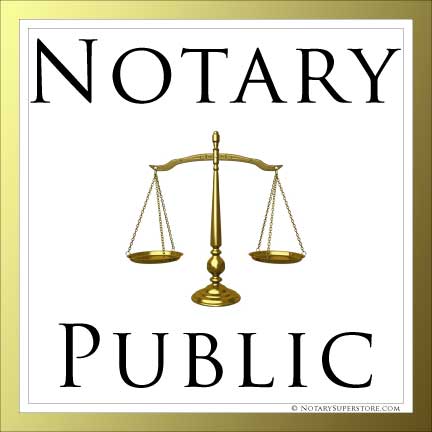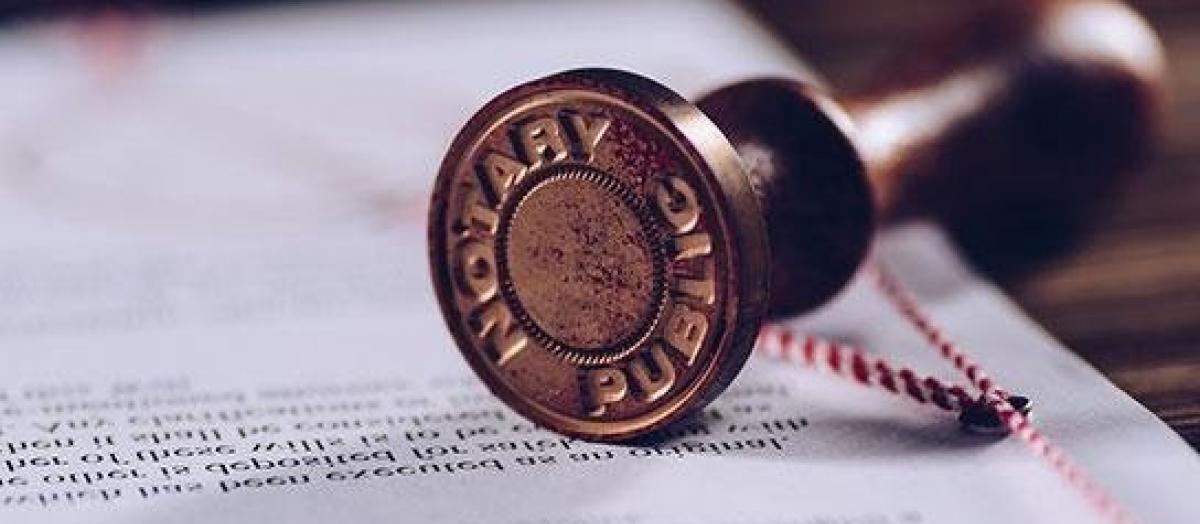Licensed Notary Solutions: Making Certain Legal Authenticity and Safety
Debunking Notarial Work: Streamlining the Duty and Value of Notaries
Their function, usually shrouded in enigma for many, carries significant weight in guaranteeing the credibility and stability of vital records. By untangling the intricacies shedding and bordering notarial methods light on the relevance of their acts, a more clear understanding emerges of the vital role notaries play in upholding the textile of lawful and legal arrangements.
The History of Notarial Work
Exactly how did notarial work evolve gradually to become an integral component of lawful and organization deals? The history of notarial job go back to old human beings, where scribes played a crucial duty in videotaping crucial information and verifying documents. As cultures proceeded, the demand for a much more formalized system to guarantee the legitimacy of arrangements occurred. This led to the advancement of notaries, individuals selected by the state to act as objective witnesses in lawful matters.
Throughout the Middle Ages, notaries got prestige in Europe, with their functions expanding to consist of composing lawful papers, certifying signatures, and maintaining records. The rise of global trade further stressed the importance of notarial operate in confirming contracts and contracts throughout boundaries.
In the modern-day age, notaries continue to play an important function in lawful and organization purchases by validating identities, validating the credibility of papers, and preventing scams. Their duty in certifying the validity of arrangements includes a layer of safety and security and depend the ever-evolving landscape of commerce and regulation.

Obligations and Responsibilities of Notaries
The historic evolution of notarial job from ancient human beings to the modern-day era has formed the distinctive responsibilities and responsibilities that notaries maintain in legal and organization transactions today. Notaries play a vital role in verifying the credibility of records and the identification of notaries. Among their primary duties is to witness the signing of essential files, such as acts, wills, and agreements, to guarantee that all parties are entering right into contracts purposefully and voluntarily. Notaries likewise verify that signatories are of audio mind and not under pressure or browbeating.
They license copies of initial documents, giving assurance to establishments that the copies are true replicas of the originals. In general, the duties and obligations of notaries are important in securing the honesty and legitimacy of numerous documents and transactions - Apostille.
Notarial Certificates and Signatures
Exhibiting meticulous focus to information, notarial certifications and signatures function as important elements in validating the credibility of legal documents. Notarial certifications generally contain essential information such as the date of registration, the names of the signatories, a summary of the file, and the notary's official seal. These certificates give a clear document of the notarial act, ensuring that the record can be conveniently identified and mapped back to the notary that looked after the process.
Trademarks play an essential duty in notarial work, as they represent the contract and approval of the parties involved. Notaries carefully witness the signing of documents to verify the identity of the signatures and validate that they are authorizing of their own free choice. By attaching their official seal and trademark to Extra resources the document, notaries accredit that the essential procedures have actually been followed which the record is valid and enforceable.
Fundamentally, notarial certifications and signatures are the trademark of credibility in legal deals, giving assurance to all parties involved that the records are legitimate and binding.
Relevance of Notarial Acts
Notarization Process Explained
Describing the registration procedure gives quality on the important steps associated with verifying legal records. The registration procedure typically begins with the individual presenting the file to a notary public. The notary then confirms the signer's identification with appropriate identification techniques. Once the identity is validated, the notary makes certain that the specific signing the record does so willingly and without any coercion.

Verdict

Notarial certificates usually have important information such as the date of notarization, the names of the signatures, a description of the file, and the notary's official seal. These certificates supply a clear document of the notarial act, ensuring that the file can be easily recognized and traced back to the notary that go right here managed the process.
By attaching find out this here their official seal and signature to the paper, notaries certify that the required procedures have been complied with and that the paper is enforceable and legitimate.
By validating the identification of the signatures, validating their desire to get in right into the contract, and accrediting the day and area of the finalizing, notaries play an essential role in maintaining the legitimacy of lawful papers.After the paper is signed, the notary will attach their official seal or stamp onto the document.